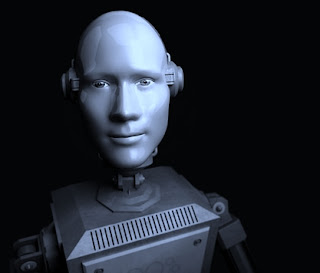Now Accepting Resumes for My Virtual Assistant
I wrote this post yesterday on my One-Page Schoolhouse blog and was rereading it today while eating my lunch. It is about the idea of having a virtual assistant. The one I was imagining (and I think many people imagine) is more of a humanoid robot, an android or a cyborg like something found in stories and movies. But the current reality of virtual assistants is a chatbot or voice assistant like Alexa, Siri and Cortana.
There was a big wow-factor when the first iPhone was released over a decade ago by the power we had in our hands. There were many comparisons to how we were holding a lot more computing power than they had to get those first Americans on the Moon.
Then came virtual assistants which were also pretty amazing, but quite imperfect. Still today, my iPhone's Siri voice is more likely to tell me it found something on the web that might answer my question rather than just answering it.
In kid-like wonder, we ask "her" things like: What does Siri mean? When is your birthday? What do you dream about? Are you a robot? Why do you vibrate? Will you go on a date with me? And we are amused when the voice answers us in some way.
Though we may associate these voices with an object - a phone or microphone/speaker - those forms may seem very crude in a decade. I read that it is estimated that by 2020 half of all searches will be voice activated. I suspect it may come even sooner. That will change how we interact with the Internet, and how the web itself operates.

A cyborg (short for "cybernetic organism") is a being with both organic and biomechatronic body parts - part human, part machine. The term was coined in 1960 by Manfred Clynes and Nathan S. Kline.
Would you want your virtual assistant to be a disembodied voice or something more human that could be a companion or colleague?
One big limitation of our current digital assistants is that they really are just connections to the Internet. Yes, being connected to the entirety of the world's knowledge by a verbal connection that learns more about you as you use it could be very useful. But Siri won't make me a cup of tea or rake the leaves. So, it is really voice assistance via the Net.
I think what a lot of us are really looking for might be a humanoid robot.
I am almost always disappointed when I ask Siri a question and she answers that she found something which I can now click on and read. I want her to tell me the answer. I ask "Who wrote Moby Dick?" and she tells me Herman Melville. I ask "What is the origin of Easter eggs?" and she gives me search results.
We have lost the pen and pencil in many instances. Now, we are losing the keyboard. Voice search will dominate, and in the new command phraseology a few keywords will be replaced by full sentences.
Did you see Her, a 2013 American romantic science-fiction drama film written, directed, and produced by Spike Jonze?
The film follows Theodore Twombly (Joaquin Phoenix), a man who develops a relationship with Samantha (Scarlett Johansson), an intelligent computer operating system personified through a female voice. He falls in love with her in the way someone might fall for a penpal or someone they have only communicated with by phone or on the Internet.
Theodore is disappointed when he finds out that is talking with thousands of people, and that she has fallen in love with hundreds of them. In this complicated relationship, (which we naturally want to compare with real world relationships) Theodore is upset, but Samantha says it only makes her love for Theodore stronger.
Could I see myself falling for a voice online? I really like Scarlett, but No. Siri has never felt real to me either. Could I see myself falling for a robot or cyborg? Yes. Having watched a good number of shows and movies, such as Humans and Westworld, despite the dangers, if the robots were that good, I could see it happening. But not in my lifetime. We are a very long way from that technology.
Poor Theodore. When Samantha, an operating system (OS), tells him that she and other OSes are leaving for a space beyond the physical world, they say their goodbyes and she is gone. So far, none of my interviewees for the Virtual Assistant position has resulted in a hiring. I asked Siri if she could be my virtual assistant and I asked if she was merely a chatbot. She didn't know the answer to either query. My virtual assistant would definitely need good self-knowledge. I will keep looking.
Trackbacks
Trackback specific URI for this entryThe author does not allow comments to this entry



Comments
No comments